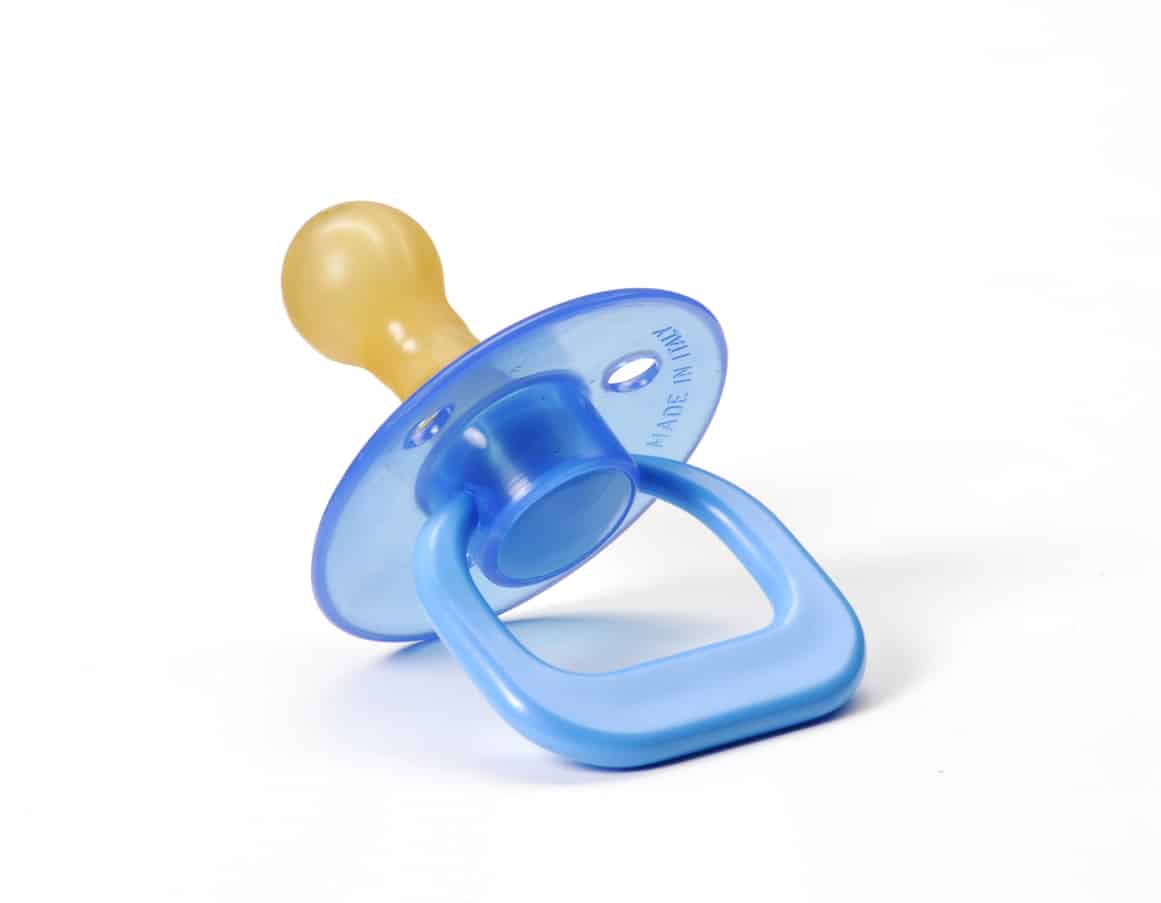A pacifier, soother, binky – whatever you might call it – sparks all kinds of opinions and judgements about your parenting methods. Grandma may tell you a pacifier makes your child “weak” or will give her a bad overbite. Auntie may say it’s a filthy habit.
However, your infant is comforted by the pacifier. It feels wrong to let him get more and more agitated when a pacifier would put him at ease. What should you do?
Alzein Pediatrics is here to help! With all due respect to Grandma and all those aunts, it’s time to debunk the binky myths.
Babies are born with a strong sucking reflex. Even in your womb, your child almost definitely sucked fingers, thumbs, even toes, and they continue to have a driving need to suck after they are born. An active sucking reflex is important because that’s how infants get nutrition, through breast milk or liquid formula. Sucking after adequate eating can also calm, soothe and help your baby feel more secure.
Breasts and binkies are different. If you are breast feeding, avoid giving your baby a pacifier for the first 3-4 weeks, to make sure your infant completely adapts to the breast and you both have settled into a productive nursing pattern.
Studies show that pacifiers reduce the risk of Sudden Infant Death Syndrome (SIDS), especially in the first six months. You can be comfortable offering your baby a pacifier at nap time and bedtime. If your child uses a pacifier and seems to be prone to ear infections, ask your Alzein medical professional about a possible connection.
Until the age of two, you do not have to be concerned about pacifier use causing dental issues. After age two, problems can start, with teeth beginning to tilt or slant. Pacifier use after age 4 is strongly discouraged as it will cause long-lasting and major damage to your child’s developing adult teeth.
Most infants will wean themselves from the pacifier, with no intervention from you, as they outgrow the need to suck. If your child is still engaging in a sucking habit when he turns two, it’s time to gently help him break the habit. This is where using a pacifier becomes a huge benefit; it’s easier to break a sucking habit if your child is using a pacifier instead of thumb-sucking. You can throw away a pacifier!
Select a pacifier brand that is BPA-free and fits your child’s mouth properly. Never secure a pacifier to your child with a cord or ribbon, as these are choking hazards. Wash your child’s pacifiers regularly in hot soapy water, or run them through your dishwasher. Do not let children share a pacifier. Check them regularly to ensure that the nipples are not broken, perforated or weak at the stems. A broken nipple can choke your child. Don’t dip the pacifier in sweeteners as sugars sitting in your child’s mouth will cause tooth decay.
Yes, Grandma, your infant may benefit from using a pacifier. A pacifier can soothe when she is fussy, can help through stressful situations like vaccines, and, if you are flying with your infant, a pacifier can help her ears “pop” through air pressure changes. With these few simple guidelines, a pacifier can be a parent’s best friend.
Need to help your preschooler kick the pacifier habit? Call our offices at 708-424-7600 or contact us and we’ll give you guidance on gently but firmly getting rid of that binky!


